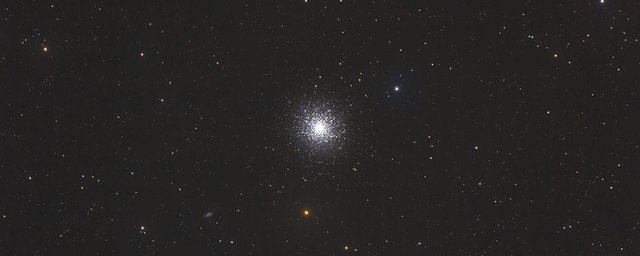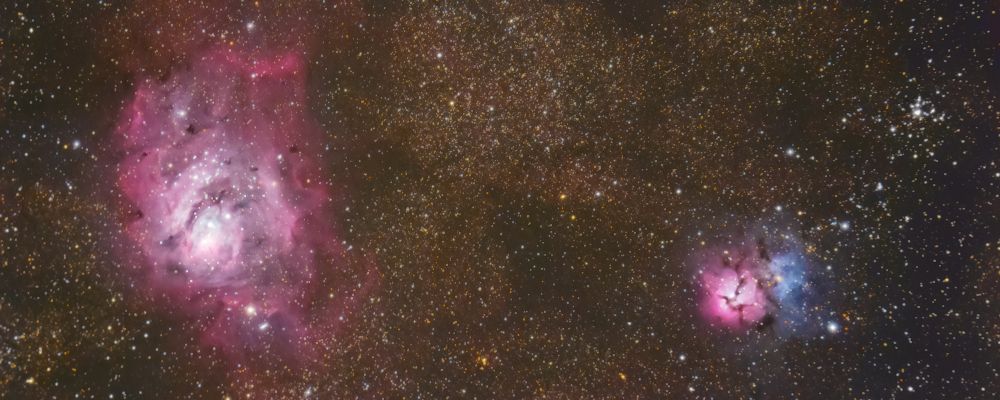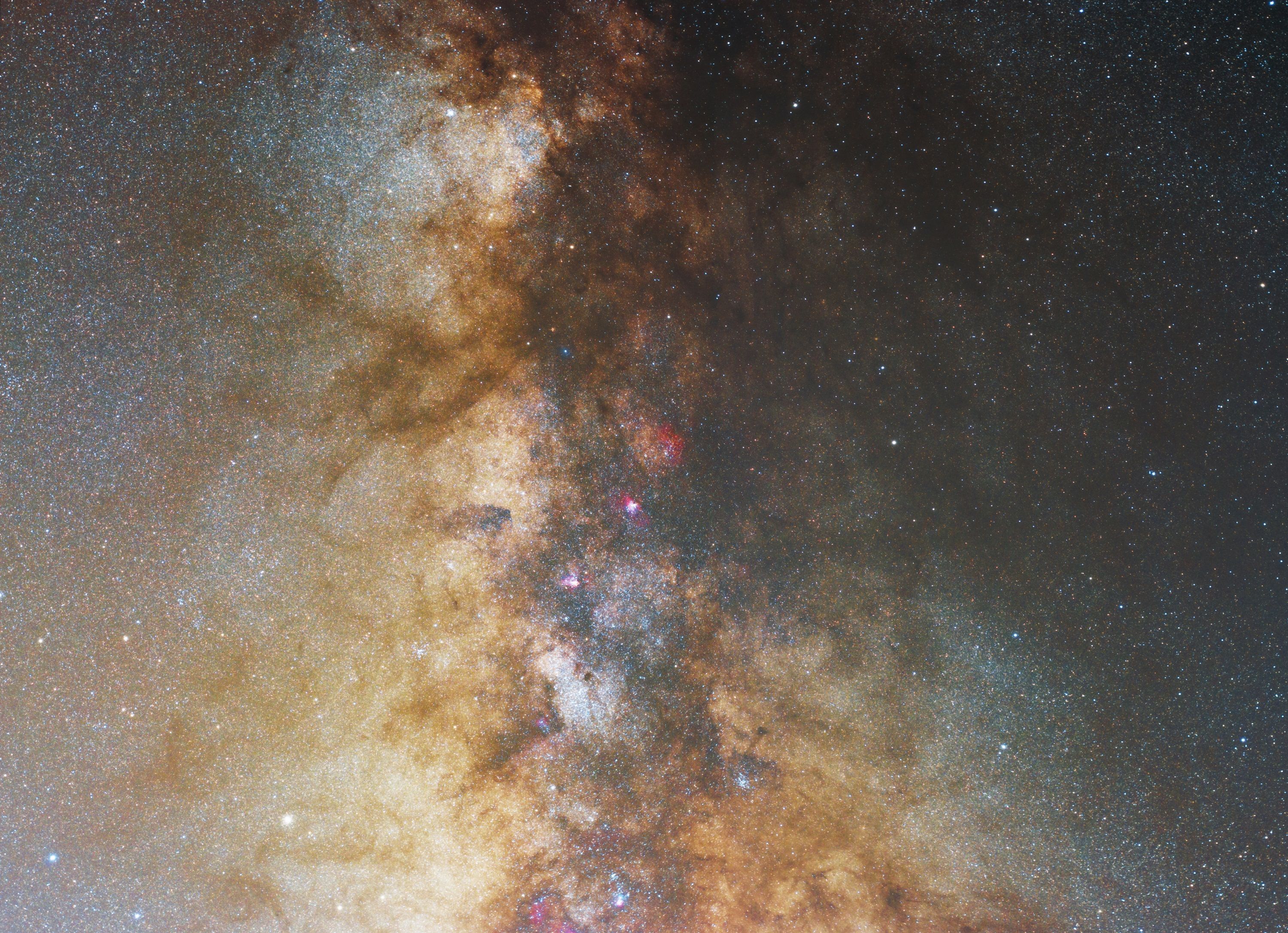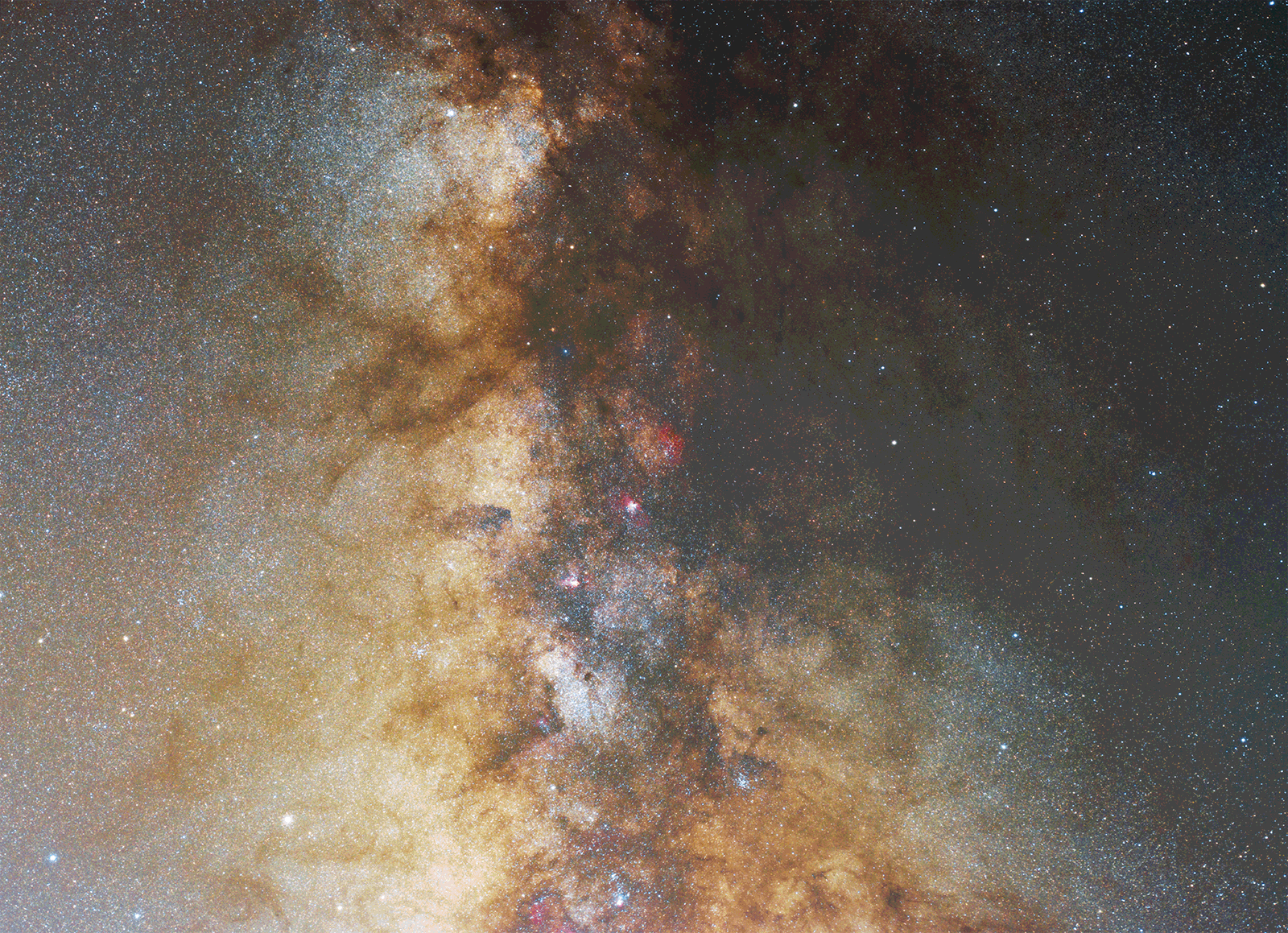Astrophotography: The Dark Rift
Hi guys! Are you ready for another trip into the Universe? I'm sorry but lately I have not really been in the game. I'm hardly working on my master thesis... what a stress! Luckily sometimes I can find time to get in the car and travel as far as possible to capture the ancient faint lights of the place that host us since time immemorial...
Because of this game between orbits, summer nights (winter in the Southern Hemisphere) allow us to observe thousands of fascinating astronomical objects belonging to the Milky Way.
A few nights ago, taking advantage of the favorable weather, I decided to head to one of the least polluted skies in Sicily (and Italy): the Madonie Park. And that's what cames out (click to enlarge)...
A 35 megapixel mosaic of 2 shots taken at about 1500m a.s.l. from the heart of the Madonie Park. I must admit that during this photo session I did not feel alone: I was surrounded by horses, cows, wild boars and foxes. A very nice company... The field of view is very large and includes up to three constellations: the Scutum (the Shield), the Sagittarius, the Serpens (the Snake) and the Ophiuchus arm (the "snake-bearer" from the greek).
The top area is full of dark nebulae obscuring the light that travels from the galactic center. These are part of the Great Rift (sometimes called Dark Rift). A huge fracture that cuts in two the entire Milky Way.

The Great Globular Cluster in Hercules (M13). Shot with a TS APO and a Canon EOS 60D.
There are also many Open Clusters and Globular Clusters such as M11, M14, M21, M22, M23, M24, M25 and M26. These are groups of thousands of stars orbiting around galaxies like the Milky Way. Our neighborhood is much more busy than we think, we currently discovered more than 150 clusters revolving around us. Any massive galaxy owns dozens and dozens of clusters.
Here you can see M13 (called The Great Globular Cluster in Hercules), the brightest globular cluster of the Northern Hemisphere. It is estimated to be 300,000 times brighter than the Sun and to has an age of just 13 billion years.

The Lagoon (left) and the Trifid Nebulae (right). M21 open cluster on far right. Shot with a TS APO and a Canon EOS 60D.
In addition to clusters and dark nebulae you can see some very famous Emission Nebulae such as the Omega Nebula, the Eagle Nebula, the Lagoon Nebula zone and the Trifid Nebula. As already mentioned in the previous articles, emission nebulae are areas of intense and violent star activity.
The huge energy released by these physical-chemical processes "lights up" in red/magenta nearby inert interstellar clouds, giving us these incredible and beautiful shapes to observe.
We will talk about the Emission Nebulae in the next articles. Stay tuned, the fun is just starting... ;)

For the most curious: for the mosaic I've used an unmodded Canon EOS 60D and a Canon 50mm f1.8 STM on a guided HEQ5 mount. The mosaic is composed by two vertical panels. Each panel is a stack of 12x 180 seconds photos. Them were acquired with AstrojanTools, stacked with Deep Sky Stacker and post-processed with Photoshop.
50mm - f/3.5 - ISO800
Light Frames: 2x 12x 180''

Alessio Vaccaro
Follow @ilvacca and upvote if you want more contents like this one. Thank you.



Absolutely spectacular @ilvacca. You made it a level up from simple astrophotography!
Thank you lighteye
Stunning! I absolutely love these images (there is a reason why for every new suit I buy, I need a matching astronomy tie. Nerd alert)
We're so lucky to be alive in a time where we can truly enjoy the Universe in this way. And open our eyes to other worlds that we could never have imagined otherwise! Keep it up! I just started my own series 5 Beautiful Satellite Images of our Planet you won’t believe are real #1 for the same purpose, namely to share the pure beauty our eyes in space provide us!
Bet you'll agree with my statement that it is about time one of our telescopes win an art award!
Upvoted and Followed you, and look very much forward to engaging with you more on this topic and grow the space community here on steemit :)
Nice to meet you. Followed ;) Very nice remote sensing posts. My master thesis is about the calibration of an hyperspectral camera for UAV.
It's incredible how much is achieveable with (relatively) inexpensive mount. I had no idea "guided" mounts were in an affordable price range for the average consumer. Your posts has really inspired me to begin looking into this hobby. It's incredible to think that you can peek at things thousands of light years away from your own backyard.
Yes, you can find something very interesting for more than 800$ ;) Looking forward to your astrophotos...
This is incredible - I love the stars and space has always intrigued me - thank you for sharing these images are amazing! I also appreciated seeing what you used to capture these shots :)
Canon EOS 60D.Nice shoot
Thank you man!
Thank you for the tour! Beautiful and informative!
Wow !! awesome and great pictures!! followed and upvoted
Woah this photos are beautiful!
Sky is really our home <3
Loved it!
awesome and beautiful shots
The best post i've seen for a last few days! Interesting, informative and such a good pictures!
Thank you travelmuse ;)